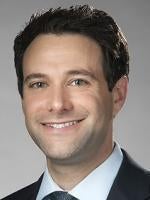Just days after Cook County passed its Paid Sick Leave Ordinance on October 5, 2016, several Cook County suburbs began the process of opting out of the law. So far, four have successfully done so. On November 15, 2016, Barrington was the first to pass its own municipal ordinance opting out of Cook County’s Ordinance, which requires all employers in Cook County to allow eligible employees to accrue up to 40 hours of paid sick leave each year. Oak Forest, Rosemont, and Bedford Park passed their own opt-out ordinances on December 13, December 15, 2016, and January 12, 2017, respectively.
The growing patchwork of suburbs opting out of Cook County’s paid sick leave requirement highlights the uncertainty accompanying the recent wave of paid sick leave legislation across the country. Since Connecticut passed the first state paid sick leave law in 2011, six other states, 30 cities, three counties, and Washington, D.C. have passed their own paid sick leave laws. With over 40 disparate laws in the books, and counting, it is no surprise that conflict over these laws has arisen.
For example, the Minnesota Chamber of Commerce sued the City of Minneapolis in October 2016, arguing that a state law preempts Minneapolis’ paid sick leave ordinance. And, unlike the Chicago or Cook County ordinances, for example, the Minneapolis ordinance does not limit the scope of its reach to employers located within the city’s borders. On January 19, 2017, Judge Mel Dickstein found the city had authority to enact the ordinance. However, he temporarily enjoined its application to employers that are not located in Minneapolis, holding “the city is not free to impose its public policy initiative on companies” outside the city limits.
Recently, the State of Ohio passed a law, effective on March 20, 2017, prohibiting counties and municipalities in the State of Ohio from opting out of paid sick leave laws.
Part of Barrington’s trouble with the Cook County ordinance stemmed from the fact that a portion of Barrington is located in Lake County, not Cook. In order to level the playing field for its Lake and Cook county employers, Barrington’s ordinance exempts local businesses from Cook County’s minimum wage and paid sick leave requirements. Instead, Barrington businesses need only follow state and federal minimum wage laws. Oak Forest and Rosemont’s ordinances, like Barrington’s, also opted out of Cook County’s minimum wage and paid sick leave requirements and only require local businesses to follow state and federal minimum wage laws. Bedford Park’s ordinance simply opts out of the Cook County Ordinance, stating that “it will not be in the Village of Bedford Park’s best interest to impose the paid sick leave mandate on businesses” with their principal place of business in Bedford Park.
As the number of state and local governments passing paid sick leave laws continues to grow, new challenges to these laws are sure to create uncertainty for employers. More Cook County suburbs may follow Barrington, Oak Forest, Rosemont, and Bedford Park and opt out. Similar to Ohio, other states, including Illinois, may follow Ohio’s lead and prohibit political subdivisions from legislating in the area of wage and fringe benefits in order to avoid a multitude of disparate laws. Employers based outside of Illinois but who have employees within the State should continue to monitor state and local laws that may impact the benefits they must afford their Illinois employees, and especially be on the lookout for new or changing paid sick leave laws.




 />i
/>i
